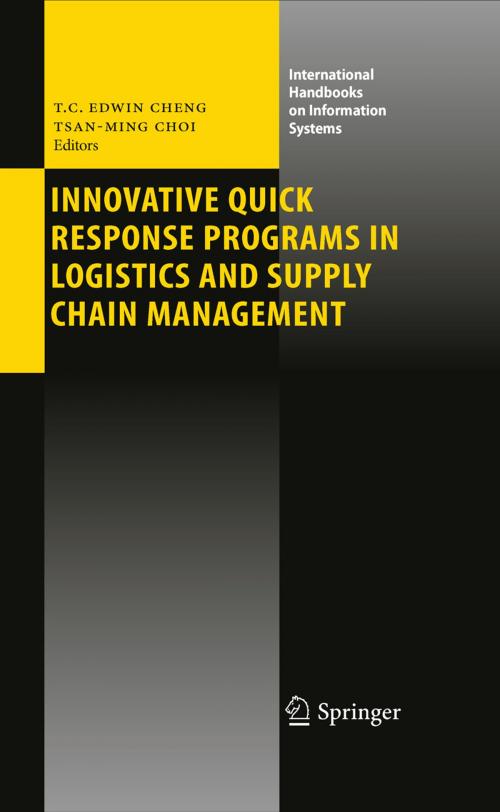Innovative Quick Response Programs in Logistics and Supply Chain Management
Business & Finance, Management & Leadership, Production & Operations Management, Industries & Professions, Information Management| Author: | ISBN: | 9783642043130 | |
| Publisher: | Springer Berlin Heidelberg | Publication: | March 11, 2010 |
| Imprint: | Springer | Language: | English |
| Author: | |
| ISBN: | 9783642043130 |
| Publisher: | Springer Berlin Heidelberg |
| Publication: | March 11, 2010 |
| Imprint: | Springer |
| Language: | English |
Quick Response (QR) policy is a market-driven business strategy in which supply chain members work together to react quickly to volatile market demand. Nowadays, with advances in information technologies (such as RFID and ERP systems), new challenges and opportunities arise for the application of QR. This handbook explores QR extensively with a view to discovering innovative QR measures that can help tackle the observed and emerging challenges. The book is organized into four parts, which include chapters on analytical modeling and analyses, information technologies, cases, reviews, and applications. This handbook provides new analytical and empirical results with valuable insights, which will not only help supply chain agents to better understand the latest applications of QR in business, but also help practitioners and researchers to know how to improve the effectiveness of QR using innovative methods.
Quick Response (QR) policy is a market-driven business strategy in which supply chain members work together to react quickly to volatile market demand. Nowadays, with advances in information technologies (such as RFID and ERP systems), new challenges and opportunities arise for the application of QR. This handbook explores QR extensively with a view to discovering innovative QR measures that can help tackle the observed and emerging challenges. The book is organized into four parts, which include chapters on analytical modeling and analyses, information technologies, cases, reviews, and applications. This handbook provides new analytical and empirical results with valuable insights, which will not only help supply chain agents to better understand the latest applications of QR in business, but also help practitioners and researchers to know how to improve the effectiveness of QR using innovative methods.















